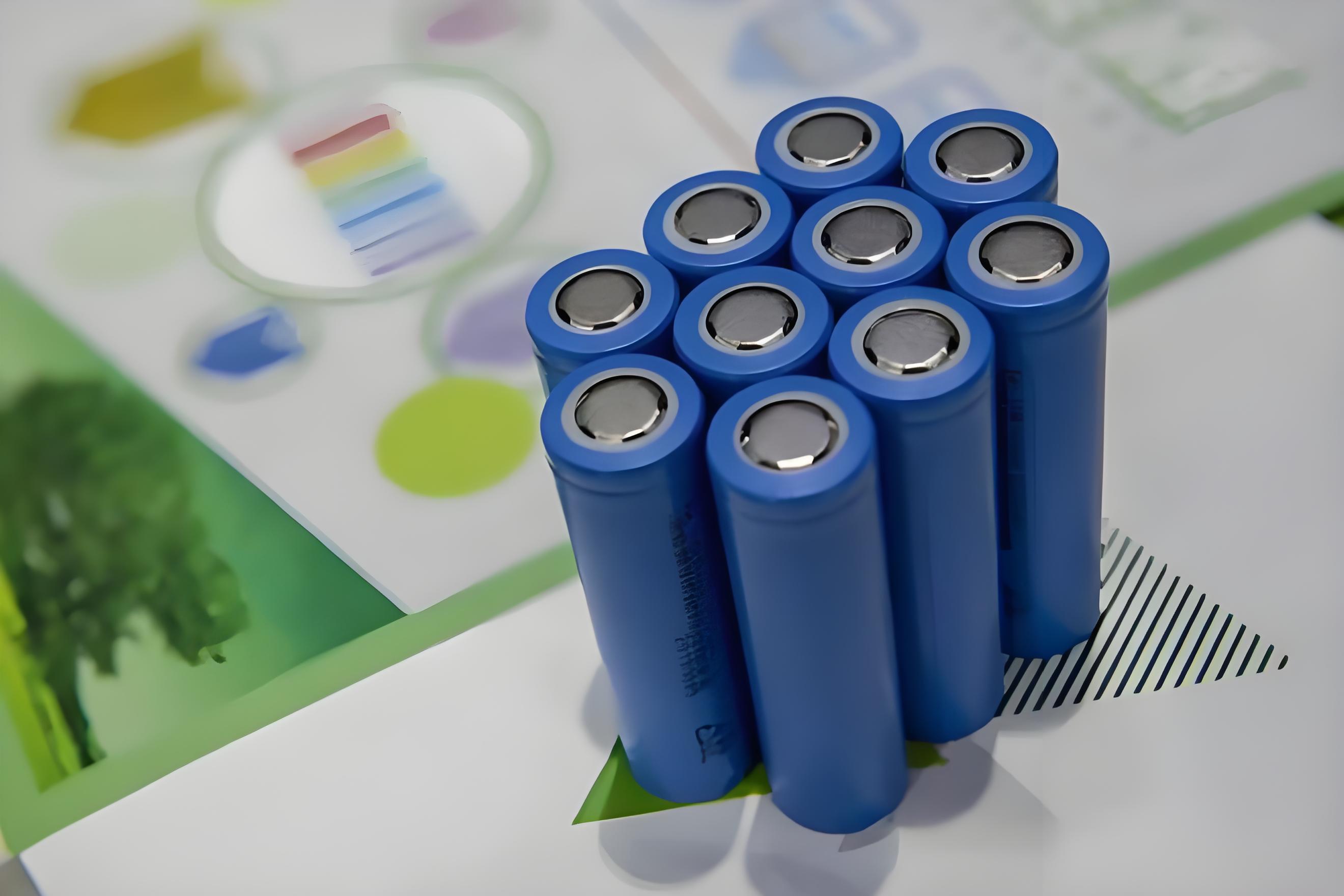مقدمة
البطاريات جزء أساسي من حياتنا اليومية، فهي تُشغّل مجموعة واسعة من الأجهزة، من أجهزة التحكم عن بُعد إلى المركبات الكهربائية. ومن أكثر أنواع البطاريات استخدامًا:ليثيوم أيون (Li-ion)والبطاريات القلويةمع أن كلا النوعين يهدف إلى توفير الطاقة، إلا أنهما مصممان لتطبيقات مختلفة، ولكل منهما مزايا وعيوب مختلفة. تستكشف هذه المقالة خصائص كلا النوعين ونقاط قوتهما ونقاط ضعفهما، وتُبرز الاختلافات بينهما لمساعدتك على تحديد النوع الأنسب لاحتياجاتك.
ما هي البطاريات القلوية؟
البطاريات القلويةهي نوع من البطاريات الأساسية التي تستخدم إلكتروليتًا قلويًا، عادةً هيدروكسيد البوتاسيوم. وهي قابلة للاستخدام مرة واحدة ولا يمكن إعادة شحنها، مما يجعلها خيارًا شائعًا للأجهزة ذات الاستخدام الواحد.
صفات:
- غير قابلة لإعادة الشحن:البطاريات القلوية هي بطاريات للاستخدام مرة واحدة ويجب التخلص منها بعد استنفادها.
- التركيب الكيميائي:إنهم يستخدمون الزنك وثاني أكسيد المنغنيز كأقطاب كهربائية، مع إلكتروليت قلوي.
- الجهد االكهربى:عادةً ما توفر جهدًا اسميًا يبلغ 1.5 فولت لكل خلية.
المزايا:
- فعالة من حيث التكلفة:البطاريات القلوية غير مكلفة ومتوفرة على نطاق واسع.
- مدة صلاحية طويلة:تستطيع هذه البطاريات الاحتفاظ بشحنتها لعدة سنوات عند تخزينها بشكل صحيح.
- متوفر على نطاق واسع:يمكن العثور عليها بسهولة في المتاجر حول العالم بأحجام مختلفة.
العيوب:
- غير قابلة لإعادة الشحن:بمجرد استنفاد الشحنة، يجب استبدالها.
- عمر محدود:إنها أقل ملاءمة للأجهزة ذات الاستهلاك العالي للكهرباء، حيث ينخفض خرج الجهد الخاص بها بسرعة أكبر من البطاريات القابلة لإعادة الشحن.
- التأثير البيئي:إن التخلص من البطاريات القلوية التي تستخدم مرة واحدة يخلق المزيد من النفايات مقارنة بالخيارات القابلة لإعادة الشحن.
الأحجام الشائعة:
- AA، AAA، C، D، و9 فولتهي الأحجام الأكثر شيوعًا للبطاريات القلوية.
الاستخدامات الشائعة:
- أجهزة التحكم عن بعد, مصابيح يدوية, الساعات، وألعابهي بعض الأجهزة النموذجية التي تستخدم البطاريات القلوية.
ما هي بطاريات الليثيوم أيون؟
بطاريات ليثيوم أيون (Li-ion)هي نوع من البطاريات القابلة لإعادة الشحن، تُستخدم عادةً في الأجهزة عالية الاستهلاك للطاقة. تتميز هذه البطاريات بكثافة طاقة أعلى مقارنةً بالبطاريات القابلة لإعادة الشحن الأخرى، وهي مثالية للأجهزة الإلكترونية المحمولة.
صفات:
- قابلة لإعادة الشحن:يمكن شحن بطاريات الليثيوم أيون مئات أو حتى آلاف المرات.
- التركيب الكيميائي:إنهم يستخدمون مركبات الليثيوم كأقطاب كهربائية، بتصميمات مختلفة اعتمادًا على حالة الاستخدام المحددة.
- الجهد االكهربى:عادةً ما توفر جهدًا اسميًا يتراوح من 3.6 فولت إلى 3.7 فولت لكل خلية.
المزايا:
- كثافة طاقة عالية:تستطيع بطاريات الليثيوم أيون تخزين المزيد من الطاقة بنفس الحجم مقارنة بالبطاريات القلوية.
- خفيف الوزن:تعتبر هذه البطاريات أخف وزنًا بكثير من البطاريات القابلة لإعادة الشحن الأخرى، مما يجعلها مثالية للأجهزة المحمولة.
- معدل تفريغ ذاتي منخفضتفقد بطاريات الليثيوم أيون شحنها ببطء شديد عندما لا تكون قيد الاستخدام، مما يحافظ على عمر افتراضي أطول بين الاستخدامات.
العيوب:
- يكلف:تعتبر بطاريات الليثيوم أيون أكثر تكلفة من البطاريات القلوية مقدمًا.
- التدهور مع مرور الوقت:تتدهور بطاريات الليثيوم أيون مع كل دورة شحن، مما يقلل من سعتها بمرور الوقت.
- المشاكل الحرارية:يمكن أن ترتفع درجة حرارتها أو تشتعل فيها النيران إذا تم شحنها بشكل غير صحيح أو تعرضت لدرجات حرارة عالية.
الأحجام الشائعة:
- 18650, 21700، والخلايا المنشوريةهي أحجام بطاريات الليثيوم أيون الأكثر شيوعًا، وخاصةً في الأجهزة مثل أجهزة الكمبيوتر المحمولة والمركبات الكهربائية.
الاستخدامات الشائعة:
- الهواتف الذكية, أجهزة الكمبيوتر المحمولة, المركبات الكهربائية، وأدوات كهربائيةتعد بطاريات الليثيوم أيون من التطبيقات الأساسية نظرًا لكثافتها العالية من الطاقة وقابليتها لإعادة الشحن.
ما هو الفرق بين البطاريات القلوية وبطاريات ليثيوم أيون؟
- قابلية إعادة الشحن:البطاريات القلوية غير قابلة لإعادة الشحن، بينما بطاريات الليثيوم أيون قابلة لإعادة الشحن.
- كثافة الطاقةتوفر بطاريات الليثيوم أيون كثافة طاقة أعلى بكثير، مما يعني أنها قادرة على تخزين المزيد من الطاقة في حجم أصغر مقارنة بالبطاريات القلوية.
- عمر:البطاريات القلوية مخصصة للاستخدام مرة واحدة، في حين أن بطاريات ليثيوم أيون يمكن أن تدوم لمئات أو آلاف دورات الشحن.
- يكلف:البطاريات القلوية أرخص في البداية ولكن يجب استبدالها بشكل متكرر، في حين أن بطاريات الليثيوم أيون أكثر تكلفة ولكنها تدوم لفترة أطول بكثير.
- التأثير البيئي:تسبب البطاريات القلوية المزيد من النفايات لأنها يمكن التخلص منها، في حين يمكن إعادة استخدام بطاريات الليثيوم أيون ولكنها تتطلب التخلص منها بطريقة خاصة بسبب تركيبتها الكيميائية.
- الجهد االكهربىتوفر البطاريات القلوية عادةً 1.5 فولت لكل خلية، بينما توفر بطاريات الليثيوم أيون حوالي 3.6 فولت - 3.7 فولت لكل خلية، مما يجعل بطاريات الليثيوم أيون أكثر ملاءمة للأجهزة ذات الاستنزاف العالي.
البطاريات القلوية وبطاريات الليثيوم أيون أيهما أفضل؟
يعتمد الاختيار بين البطاريات القلوية وبطاريات ليثيوم أيون على الاستخدام المقصود:
- لأجهزة منخفضة الصرف للاستخدام مرة واحدةمثل أجهزة التحكم عن بعد والمصابيح الكهربائية،البطاريات القلويةيعد خيارًا أكثر فعالية من حيث التكلفة.
- لالأجهزة عالية الاستنزافمثل الهواتف الذكية وأجهزة الكمبيوتر المحمولة والمركبات الكهربائية،بطاريات ليثيوم أيونهي الخيار الأفضل نظرًا لطبيعتها القابلة لإعادة الشحن وعمرها الأطول وسعتها الأعلى في مجال الطاقة.
خاتمة
لكلٍّ من البطاريات القلوية وبطاريات الليثيوم أيون مزاياها واستخداماتها الخاصة. البطاريات القلوية ميسورة التكلفة، ويمكن التخلص منها، ومثالية للأجهزة منخفضة الطاقة، بينما تُعد بطاريات الليثيوم أيون مثالية للأجهزة عالية الأداء التي تتطلب مصدر طاقة طويل الأمد وقابل لإعادة الشحن. يعتمد الاختيار المناسب على احتياجاتك، سواءً كنت تُفضل الفعالية من حيث التكلفة أو الأداء طويل الأمد.
وقت النشر: ١١ سبتمبر ٢٠٢٤

